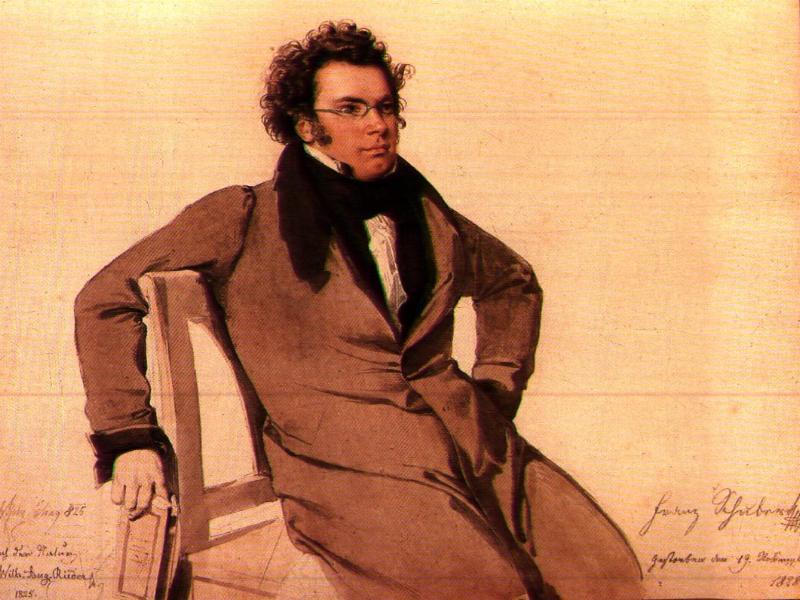
The Spell of Schubert at the Santa Fe Chamber Music Festival
There is undoubtedly a serious air of music-making that happens after sundown during the justly celebrated Santa Fe Chamber Music Festival — something about the sound, as night comes on, of strings being tuned before a Brahms Quintet – setting up nighttime expectations of virtuosic performances by this year’s pianist Joyce Yang, musician-in-residence; soprano Dawn Upshaw; or the Shanghai String Quartet. Still, I’m ever happy to walk from the sweltering midday heat into the cool St. Francis Auditorium for one of the festival’s noontime concerts. It’s like you’ve ducked in out of the 21st century, and sat down in shorts and flip-flops to hear a 20 year-old kid play Schubert.
Indeed, with the festival’s open rehearsals going on most days, lots of youth concerts, as well as several select master classes (past festivals have featured Pinchas Zukerman, Leon Fleisher and Michael Tree), the St. Francis auditorium makes possible a very lucky kind of pleasure that usually is verboten, conducted behind doors closed to the public.
Tuesday two weeks ago, I climbed up to the balcony — a cool little corner of night in the middle of day — to hear Kuok-Wai Lio perform Schubert’s final piano Sonata in B flat, and Leos Janacek’s “In the Mists,” the latter about as diaphanous an approximation of impressionist sensibility as you’ll get from an early 20th-century Czechoslovakian. Lio, a native of Macao, China, and already winner of a number of prizes, cuts a handsome figure. His physical grace at the keyboard, even during quick surges in velocity, is reminiscent of a supple, martial elegance. He can, I imagine, play anything. His arms extend out in front of him an unusual distance, reaching effortlessly across the emptiness like the necks of a swan.

Kuok-Wai Lio
Both pieces need strong narrative hands, and psychological curiosity. At not yet 32 years of age, the syphilitic Schubert, after all, is in the last weeks of his life, but composing startling lucid, mature works, prolifically. His sonata can sound like a self-referencing elegy, a measure of serenity or stoic sweetness interrupted with low sudden tremors But then again the scherzo and final allegro show an irrepressible spirit, the exuberance of the composer himself who could in this late hour so quicken and shimmer.
Janacek has left traces in his composition of the death of his daughter, along with an ill-tempered snippet of a Bach toccata. The time signatures change, tempo and dynamics are impetuously buffeted and caressed. To be sure there are sylvan moments and an appealing. enchanted ambiguity of major and minor keys.
But I missed Kuok-Wai’s own imagination. As enviable as the intuitive intelligence his hands have for the keyboard, the thrall and romanticism in his effortless mastery of complex repertoire, I was waiting to hear the force of dramatic intellect, a deep sense of personal and biographical history. It is often said, perhaps too much so, that young players rarely have the requisite life experience to represent the demanding philosophical questions of a Schubert or Mahler, the emotional architecture of Bach, the subjective, quixotic naturalism of Janacek. Maybe.
The manuscripts, however, replete with explicit dynamic directions — imperious forte, ebullient crescendo, restless time changes, subito — these symbols prod and exhort the body into storied physicality. Technique must do what the music is about. What is gestured is what said. As immensely satisfying as Lio’s concert was, I wanted more of that ever-telling spell of touch, right there where fingertip touches piano key.
